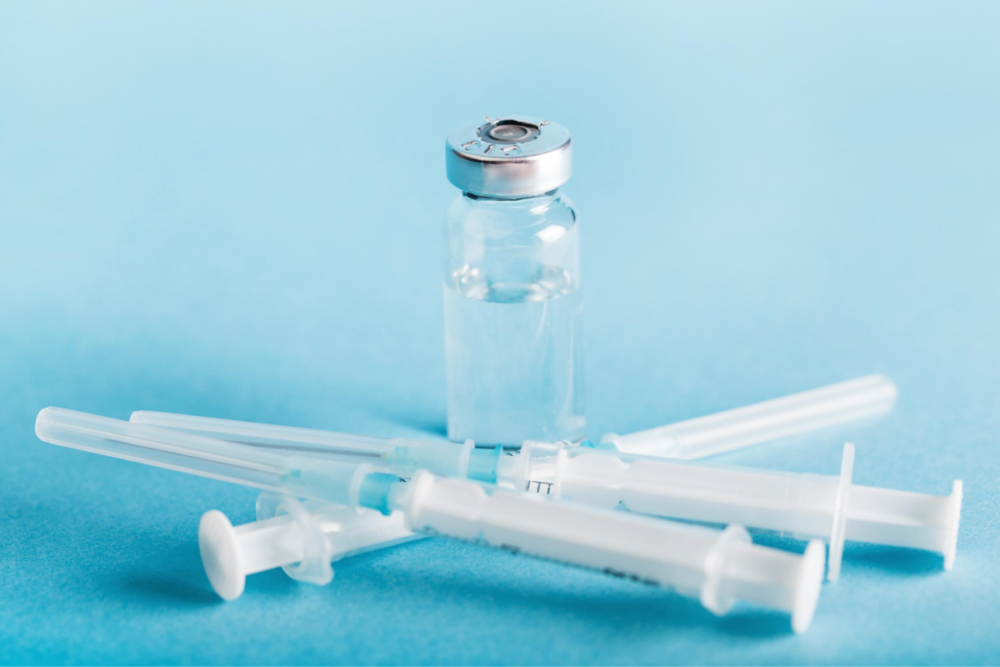PEPTIDE THERAPY: REVOLUTIONIZING MEDICINE
Have you heard about peptides? They’ve been praised for their many health benefits, but there’s some confusion about them. What are they, what do they do, and who should take them?
In this article, we’ll explain the science behind peptide therapy, as well as its many benefits and uses.
How A Breakthrough Treatment is Providing Relief for Mind and Body
What are Peptides?
Peptides are the building blocks of proteins. They are comprised of amino acids bound together in chains. When these chains connect together, they form a protein.
It should be noted that peptides are not proteins. Amino acids make up both, but protein contains higher amounts of amino acids than peptides. This actually makes peptides easier to absorb than proteins since they are smaller.
Peptides facilitate cell-to-cell communication, essentially telling the body which cells to turn on and off. This means you can re-activate cells that may have gone dormant or need an extra boost.
Some peptides occur naturally, and some are synthesized. Every single living organism contains peptides, as well as many health and cosmetic products.

Peptides carry out a wide variety of functions, which include:
- Acting as hormones
- Fighting against the effects of aging
- Lowering blood pressure
- Regulating appetite, metabolism, and digestion
- Acting as antioxidants to scavenge free radicals
- Reducing inflammation
- Delivering messages from the tissue to blood
- Providing structure to muscle and bone
Through peptide therapy, users can target these systems to assist with certain ailments.
What is Peptide Therapy?
In peptide therapy, the client receives a targeted treatment of peptides depending on their desired outcomes. They are administered via injections, nasal spray, topical creams, or pills taken orally. Different goals require different methods of treatment.
Since there are over 7,000 known peptides, the possible benefits of peptide therapy are numerous and far-reaching. Let’s take a closer look at two examples to illustrate the benefits of peptide therapy:
1. Muscle Repair

Athletes and bodybuilders are often at risk of injuring their muscles. When this happens, they can turn to a peptide called GHRP (Growth Hormone Releasing Hexapeptide) to rebuild muscle. This peptide speeds up the recovery process for torn muscle fibers and tissues.
This means that you can recover faster from an injury and get back to peak condition. If you’re trying to build muscle, this type of peptide therapy can speed up the process for faster results.
Peptides can also increase the production of testosterone, which is one reason they’re so popular in the bodybuilding community. Their anti-inflammatory properties are also great for speeding up the recovery process for injured athletes or anyone dealing with inflammation.
2. Skin Therapy

Our bodies naturally produce collagen, which helps give the skin a natural glow. However, as time goes on, our bodies produce less and less collagen. Through peptide skin therapy, however, peptides essentially tell the body to produce more collagen. This leads to a reduction in skin aging and more youthful, healthy-looking skin.
Here’s how it works. Collagen molecules are too large to pass through the skin. However, when applied as a topical cream, collagen peptides can be absorbed through the skin because those molecules are smaller. These peptides act as messengers, sending a signal to your body that more collagen is needed, so as a response, your body begins to produce more collagen.
Who Should Take Advantage of Peptide Therapy?
Healthy skin and muscle regeneration are just two popular uses for peptides. Let’s take a look at some of the other reasons to consider peptide therapy:
1. Hair growth: By targeting the cells responsible for hair growth, peptides can stimulate follicle growth and even improve natural hair color.

2. Improved cognitive function: Cognitive function weakens over time, leading to problems focusing and retaining information. Certain peptides have helped improve retention and the ability to focus. Studies have also shown success in treating symptoms of Alzheimer’s Disease with peptides.
3. Losing weight: In addition to the muscle-building properties listed above, peptides can also help burn fat. Others can help by suppressing appetite. A medical professional who knows peptides inside and out can provide the right combination for weight loss.
4. Easing joint pain: A major cause of joint pain is the erosion of cartilage over time. Peptides can help repair and regenerate damaged cartilage.
5. Better sleep: Studies have found that Delta Sleep Induced Peptide (DISP), first discovered in rabbits, can help humans achieve more satisfying sleep.

6. Chronic health conditions: People with conditions like Lyme disease or arthritis could find vital relief with peptides. The right combination of peptides can strengthen the immune system and reduce inflammation for a variety of disorders and autoimmune diseases.
7. Insulin production: Studies have shown that the peptide catestatin (CST) improved glucose and insulin tolerance in mice, which is encouraging news for treating obesity and type 2 diabetes.
8. Another major benefit of peptides: they are also very low risk: They get in, send the signals to the targeted area or system, and are then recycled by the body.
Are You Ready to Join the Peptide Revolution?

If a certain function of your body is failing, either due to age or an external cause, peptide therapy can target that system and tell your body to reinvigorate it.
Read More: https://ssrpinstitute.org/peptide-therapy-revolutionizing-medicine/
.png)

.png)



.png)


Comments
Post a Comment